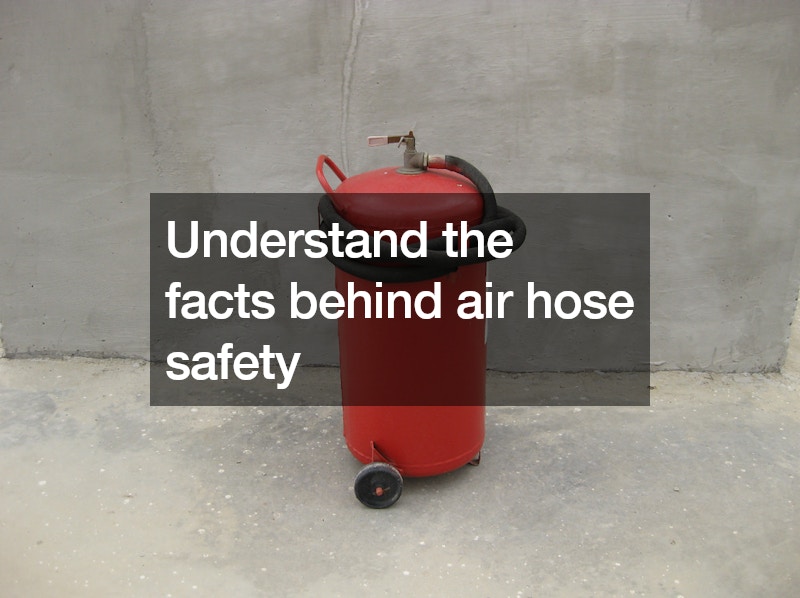Believe it or not, compressed air is one of the most dangerous elements any person can deal with. There’s a reason why it’s used to operate valves, dust collectors, and other machinery: it’s powerful. Therefore, it’s imperative to know how to handle new air compressors, and there are four things you need to remember when it comes to safety in this industry.
You’ll need to understand the facts behind air hose safety because properly connecting the pressurized air to power other machinery is the key to avoiding accidents. Storing these hoses correctly is also essential. Get familiarized with all the safety guidelines to follow when using an air compressor, such as wearing proper protective gear, keeping the machines from overheating, keeping spaces clear of obstructions, etc.
People may ask: are air compressors dangerous? Yes, but only if you don’t know how to handle them, or you miss a safety step. That’s why only specialized professionals should work with them. Common air pressure hazards examples include eardrum rupture, eye damage, skin injuries, and air bubbles entering the bloodstream, traveling to the brain or heart, and causing a stroke. There are several more dangers, so let’s discover everything you need to remember about compressed air safety.

Many industrial applications, including refrigeration, breathing equipment, inflation devices, pneumatics, and air brakes, use compressed air to get the job done. However, the intense pressure of compressed air canisters makes them a potential hazard. With the proper installation of air compressor and air dryer equipment and by following these tips, you can enjoy the safe use of industrial air compression equipment.
1. Check Air Hoses for Damage
Working with compressed air is risky if a hose is frayed or damaged. Air will leak out of a damaged hose, reducing the pressure and potentially damaging the equipment. A broken hose could also explode outward when pressurized. The sudden release of pressure from an explosion could cause machines to engage or disengage unexpectedly, or cause injury to anyone standing near the hose or equipment.
The regular inspection of all hoses that transfer compressed air ensures that you minimize the risk of injury to people or the damage to equipment.
2. Wear Ear Protection
Safe Work Australia notes that an estimated one million Australians may be exposed to dangerous levels of noise when working. They also state that it is the most common preventable cause of hearing loss.
No matter the application, it is always vital to wear protective gear to shield your eyes and ears every time you operate industrial equipment, particularly noisy compressed air machinery. The risks of exposure to the constant hum of the air compressor or the loud hissing of escaping pressurised air are not always immediately apparent but could be felt years down the line.
3. Keep Compressed Air Generators in Good Condition

An air compressor — the machine that generates the pressurized air — is a relatively simple piece of equipment that forces air into a tank then releases it when needed.
Ensuring that the machine is well-maintained is vital to safety. Lubricate the motor and frequently change the oil and ensure that all electrical cords are not damaged. It would help if you inspect the pressure gauges regularly to make sure that they give accurate readings. You should avoid allowing too much pressure to build up within the tanks, as well.
4. Do Not Blow Compressed Air at Yourself or Someone Else
Besides the compressor, compressed air itself is a potentially dangerous hazard. Pressurized air is capable of entering your bloodstream through a body opening or a break in the skin. The result would be an air bubble in your bloodstream, causing a medical condition known as an embolism.
This severe condition can result in blocked blood vessels, causing paralysis, a coma, or even death, depending on the location of the effect and the duration taken before receiving medical assistance.
Get Safety Advice from an Air Compressor Expert
One safety tip above all the others mentioned is that you should always use common sense when you work in an environment that contains compressed air. Be aware of anyone standing within your workspace or standing too close to a potentially dangerous piece of equipment. Air compressor and air dryer experts are available to advise you on the appropriate protective gear to wear when operating industrial machinery and can perform essential preventive maintenance on air compressors.
